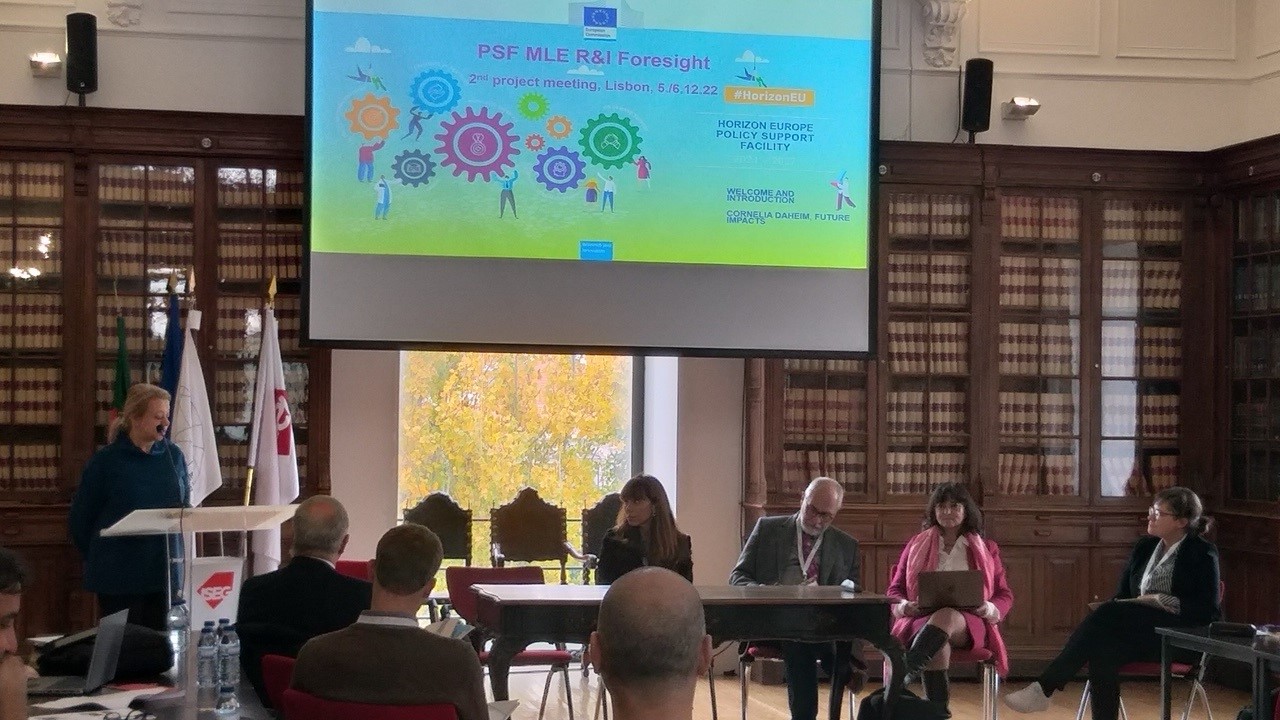FCT, ISEG and the European Commission promoted a workshop on MLE - Mutual Learning Exercise

FCT, ISEG and the European Commission (Directorate-General for Research and Innovation) promoted, on December 5, a workshop with the active participation of representatives from all sectors of the National Research and Innovation System (R&I), and representatives of European states participating in this MLE-Mutual Learning Exercise, in order to discuss and agree on possible guidelines and joint work with a view to an institutionalization of capabilities and the creation of foresight communities in this system.
The following day, December 6th, FCT hosted the meeting of this network that has, besides Portugal, representatives from Austria, Belgium, Czech Republic, Finland, Norway, Romania and Slovenia (more information here).
The MLE on R&I Foresight is the result of the discussion held at three workshops organized between 2020 and 2021 by each of the Presidencies of the Trio of Presidencies of the Council of the European Union (DE-PT-SI), which aimed to map and relaunch foresight activities in the Member States, given the centrality of this topic in times of great uncertainty and crisis. The Workshop organized by the Portuguese Presidency was entitled "From Megatrends to Global Uncertainties on Research & Innovation (R&I)".
The present MLE is also framed within the need for greater institutionalization of foresight in the process of policy formulation and decision support, both within the European Commission and the Council of the EU. In the context of the latter, we highlight the launch of two European foresight networks, that of the Ministers of the Future and that of the Senior Officials Network.
The topics chosen for the present MLE exercise, which will be the subject of differentiated workshops, were as follows:
- Institutionalization of capacities and creation of communities in foresight in the different components of the R&I system;
- Approaches and methods for citizen involvement;
- Foresight, twin transitions and potential disruptions;
- From Foresight to Smart Specialization Strategies for involvement in the European Union R&I programs, Missions and Partners.
Each of these topics has a hired expert as rapporteur.
This first workshop, focused on Portugal, had as main objective the discussion of the evolution and emerging challenges for foresight in the National System of R&I. The debate was open and participatory, with the participants sharing their expectations and reflections on challenges and opportunities regarding the creation and institutionalization of capacities and competencies in foresight for R&I in the country, in general, and in their organizations, in particular.
The participants in the meeting, both Portuguese and foreign, also shared their thoughts on how the capacity building in Foresight for R&I in Portugal and in the European Research Area (ERA) can evolve. They consider it essential to have more training and education of staff in this area, including tailor-made training and workshops on the different themes, or even the introduction of foresight in the school curriculum, of which the example of ISEG was given regarding the adoption of this practice some years ago.
Finally, the importance and willingness to participate in an informal national network of Foresight for R&I was also stressed, with a view to sharing information and knowledge, organizing events of common interest, including thematic pilots, with a view to creating critical mass and endogenization of foresight practices in the processes.